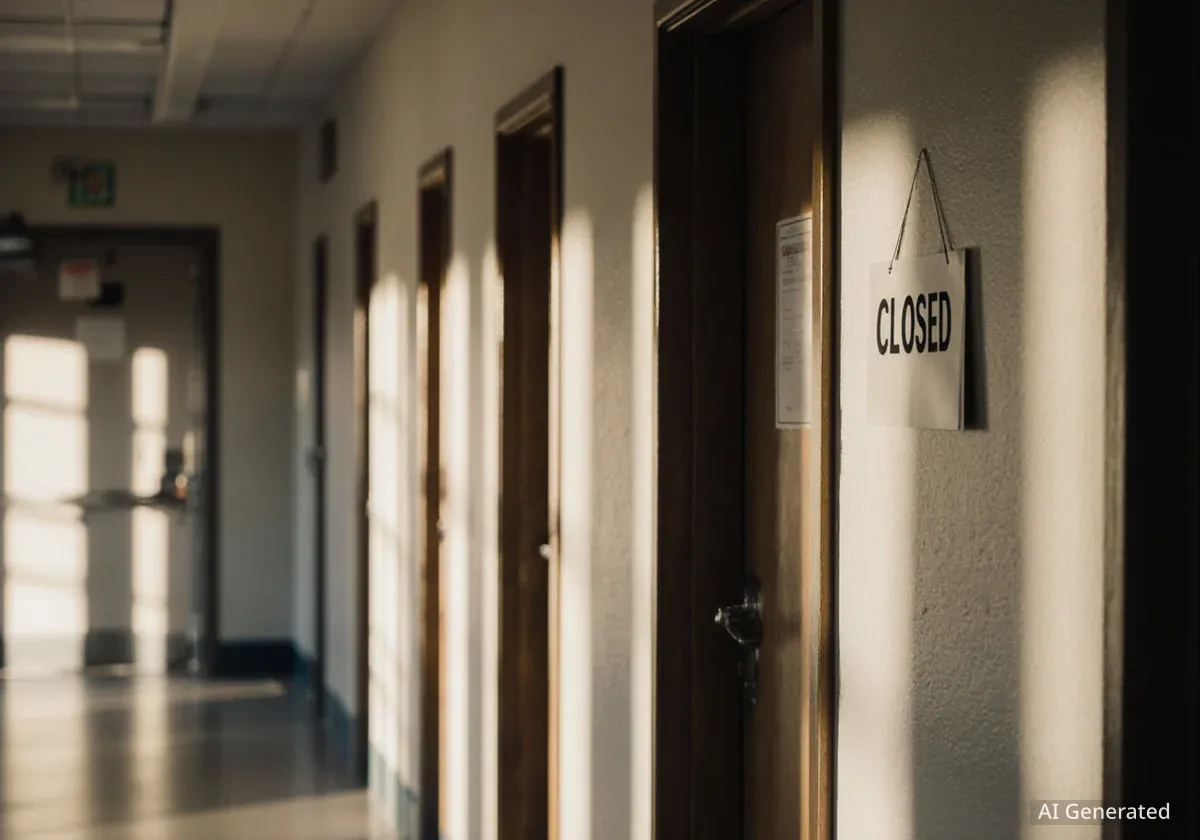A significant gap has emerged between the priorities of American education researchers and the day-to-day challenges faced by teachers in the classroom. While academic research increasingly focuses on themes of equity, identity, and social justice, educators are primarily concerned with more immediate issues like student behavior and teacher retention, according to a recent analysis.
This divergence is raising questions about the effectiveness of current educational scholarship and its impact on schools, especially as national student performance in core subjects shows a decline.
Key Takeaways
- A study of 25,000 academic presentations found topics of equity and social justice were twice as common as any other research area.
- A survey of over 260 teachers revealed their top concerns are student discipline, classroom management, and staff retention.
- The disconnect comes as national test scores in reading and mathematics have been falling, prompting scrutiny of educational policies.
- Critics suggest that the focus of federally funded research is misaligned with practical classroom needs, potentially leading to ineffective school reforms.
A Tale of Two Priorities
Recent findings highlight a stark contrast between academic discourse and classroom reality. An extensive review of presentations from the American Educational Research Association’s (AERA) annual meetings between 2021 and 2025 revealed a dominant focus. Out of 25,000 presentations, topics related to identity, equity, and social justice were the most prevalent, appearing at double the rate of any other subject.
However, when researchers surveyed more than 260 teachers about their most pressing concerns, a different picture emerged. Teachers identified “more immediate and practical” issues as their main challenges. These included managing student behavior, maintaining discipline, and addressing the ongoing problem of teacher retention.
By the Numbers
An analysis of 25,000 academic presentations showed that social justice and equity themes were the most frequent topics. In contrast, a survey of over 260 teachers showed their top concerns were student behavior and staff retention.
Even when research did touch upon practical matters like school discipline, the proposed solutions often centered on theoretical frameworks. For example, presentations frequently emphasized restorative justice approaches, a method that has faced criticism for failing to consistently deliver positive results under rigorous evaluation.
The Influence of Ideology on Research
The AERA, considered one of the most prestigious organizations for education researchers in the United States, appears to be operating within a distinct ideological framework. The association's public materials often highlight research that frames opposition to diversity, equity, and inclusion (DEI) initiatives as a product of “White racism and nationalism,” a viewpoint that sidesteps arguments about compelled speech or potential reverse discrimination.
This ideological leaning also appears to influence funding and recognition. Announcements from the organization have called for funding dissertations specifically for “underrepresented minorities,” placing an emphasis on the researcher's identity rather than solely on the quality and merit of the proposed research.
What is Ethnomathematics?
Ethnomathematics is an approach to teaching that studies the relationship between mathematics and culture. Proponents argue it makes math more relevant to diverse students, while critics express concern that it can de-emphasize foundational mathematical principles in favor of cultural or political analysis.
This trend is not confined to a single organization. It reflects a broader pattern in how education research is funded and promoted. Investigations into U.S. Department of Education grants have shown federal funding directed toward projects that promote “equity” in Advanced Placement Computer Science courses and incorporate racial considerations into teacher hiring practices. Further, grant awards have been evaluated based on the racial diversity of the research teams themselves.
Consequences in the Classroom
The disconnect between research and reality has tangible consequences. Education research plays a crucial role in shaping school policies, curriculum development, and teacher training programs. When this research is detached from the primary needs of educators and students, it can lead to misguided reforms that fail to improve, and may even worsen, school environments.
This issue is particularly concerning against a backdrop of declining academic performance nationwide. As reading and math scores fall, the pressure to implement effective, evidence-based strategies in schools intensifies. However, the current research landscape seems ill-equipped to provide the practical solutions teachers are asking for.
The field of education research also faces an internal accountability problem. A review of the discipline found that only one in every 1,000 education studies attempts to replicate the findings of a prior study. This lack of replication makes it difficult to verify which interventions are truly effective and which are simply based on flawed or non-generalizable results.
"As the field grows increasingly insular and self-reinforcing, this lack of humility is contributing to real-world failures in student learning and teacher safety."
Ultimately, when scholarly work prioritizes ideological agendas over practical problem-solving, it risks losing its relevance and utility. For teachers on the front lines, the need for research that addresses classroom management, student discipline, and academic fundamentals has never been greater. The current trajectory suggests that the academic community may not be listening.





